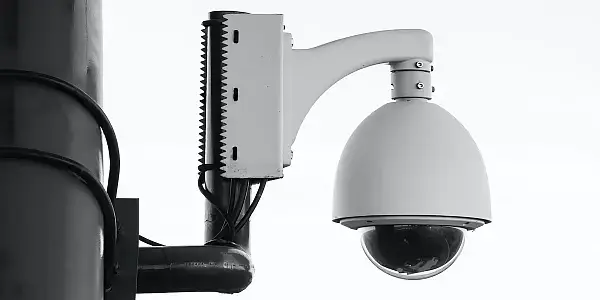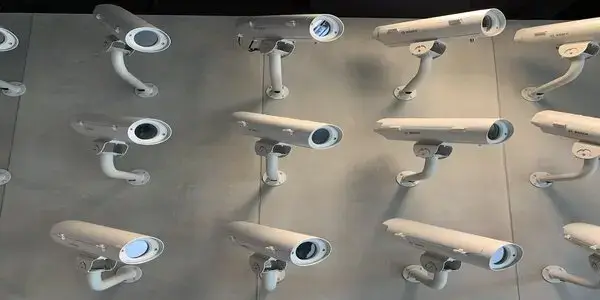With the rapid advancements in technology, Internet Protocol (IP) cameras have become an indispensable tool in the security landscape. Known for their efficiency in monitoring, recording, and transmitting video over an IP network, IP cameras have turned out to be more versatile and functional than traditional surveillance cameras. Despite their capabilities, these digital surveillance devices are only as good as the support they receive from your internet service provider. Let’s delve into how you can improve their performance considerably by optimising your internet speed.
Understanding IP Cameras and Their Dependence on Internet Speed
Improving IP camera performance with optimal internet speed is intricately linked. For these devices to function at their best, a robust internet connection is essential to facilitate the efficient transmission of the substantial data they capture. The precise internet speed requirements, however, can fluctuate based on several factors, such as video resolution, the quantity of installed cameras, and the employed compression technology.
Why Internet Speed Matters
Maximising your IP camera performance without the right internet speed can be challenging. A high-speed internet connection enables:
- High-quality streaming: The quality of your internet speed has a direct impact on how smoothly and efficiently videos stream. A strong internet connection guarantees that your camera records clear, sharp images and allows for timely alerts for in-the-moment monitoring. In the end, having fast internet is essential to improving your camera’s basic features and guaranteeing smooth operation and user experience.
- Real-time access: Resilient internet connections enable you to view your security video in real time from any place, allowing you continuous monitoring and the highest possible level of protection for your assets or property. This feature improves reactivity and situational awareness, making the surveillance system more dependable and efficient.
- Efficient cloud storage: One major benefit of IP cameras is its ability to be seamlessly integrated with cloud storage and high-speed internet. These cameras provide quick and effective cloud video backup due to their fast upload speeds, which are enabled by strong internet access. In addition to improving data security, this function makes it possible to quickly and easily retrieve stored video from any location with an internet connection.
- Seamless integration: The smooth integration of IP cameras with smart locks and alarms, among other home security solutions, is another example of their adaptability. In order to provide the optimal connectivity and communication required for these integrated smart home security systems to operate, stable and fast internet is essential. By strengthening overall security measures, this integrated strategy gives homeowners a comprehensive and efficient way to monitor and safeguard their properties.
In essence, while your camera may function with a lower internet speed, to maximise its potential and enjoy all the features to the fullest, a higher speed is needed.
Improving IP Camera Performance with Optimal Internet Speed
While focusing on internet speed is critical, you should not overlook other essential factors. These may consist of the type of IP camera, its resolution, the number of frames per second (fps), the bitrate, and whether it uses H.264 or H.265 codec for compression.
Let’s understand how the internet speed can generally impact and improve each of these aspects:
- Type of IP camera: IP cameras can either be non-HD, HD, or Ultra HD. Each type demands a different speed. Non-HD might require at least 1Mbps, HD could necessitate 2-4Mbps, and ultra-high-definition cameras may demand 7-10Mbps or more.
- Resolution: The higher the resolution, the clearer the picture, and it also requires a higher internet speed. A 1080p camera may require at least 3Mbps, while a 4K camera can demand 25Mbps or more.
- Frames per second: More fps means smoother footage but that increases your internet speed requirement. For example, 30fps at 720p may need 3-4Mbps.
- Bitrate: Higher bitrate provides better image quality. The bitrate increases with resolution and fps, thereby requiring a faster internet speed.
- Codec used: Compression codecs like H.264/H.265 ensure your video uses less bandwidth. Their use can help manage the internet speed required.
Ensuring the Right Internet Speed
Before jumping to conclusions and upgrading your internet plan, consider these questions: How many IP cameras do you have? What are their specifications in terms of resolution, bitrate, fps, and compression?
Knowing your needs and thoroughly assessing them can help you land with the right internet speed that ensu res optimal IP camera performance. Consult with your internet provider to understand better the options and packages available.
Conclusion
Maximizing your IP camera’s performance requires more than merely installing the technology. The intricate balance between the quality of surveillance you desire and the necessary supporting factors including the type of camera, the video compression technology utilized, and, most importantly, the speed of your internet connection should be minded closely. Regular maintenance and updates will ensure your IP camera remains at its best, providing peace of mind through reliable home or office security.

